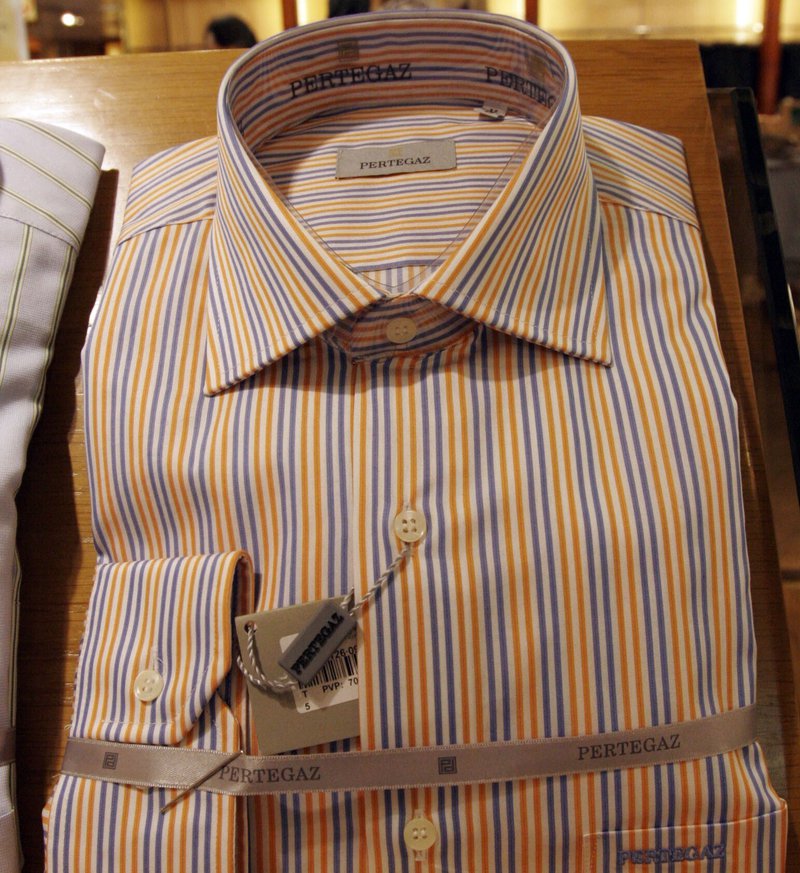THE LAST WORD
The shirt off my back
The signs of summer are unmistakable. Swallows cavort outside my office window as they hunt flying insects trying to find a way into my house and feast on my blood. The neighbour’s kids make a racket in their swimming pool (really, I’m not envious) while I do work of vital importance. The frequent trips to the fridge to refill my glass with yet more cold water that all too often turns out to be chilled beer. The sudden disappearance of the clothes I wear most of the year, which I’m told are not suitable for summer, leaving me with a few scraps of glorified beachwear.
I know I look terrible, thanks for reminding me, but that’s because I have no access to my clothes, which I assume are locked away in a safe and surrounded by laser tripwires. I don’t need any more clothes, I point out, I already have too many. The problem is I will have no access to them until the weather changes.
The clothes issue is a bugbear. Take the shirt situation. I work from home most of the time, in a small village with only a few dozen residents. On the odd occasion I need to go somewhere, a proper shirt is usually not required and I can get away with a polo shirt or a sweater. That means I have enough with a couple of shirts in the wardrobe for those rare moments when I have to make an effort. Yet I have over 20 shirts, most of which have never been worn and which are dragged out of storage every autumn, washed, pressed and hung in the wardrobe, where they remain mostly untouched for months before being collected and put back in storage again.
I haven’t bought myself a shirt for about five years and the reason I have so many of them is that the shirt has become the go-to gift from family and friends. This last King’s Day I got three, two of which I’ve never worn and the other I only wore that afternoon to please the person who gave it to me as a way of showing my gratitude.
I sound like an ungrateful pig but I really do appreciate the thought behind the gift, and I understand that the giver will probably have gone out of their way to select just the right shirt for me and paid good money for it, cash that they probably need for something else. That thought is humbling and makes me love them all the more. But it doesn’t get round the issue that I don’t wear shirts very often.
If by some miracle you are still reading this column, you might be wondering why I’m going on about shirts. The reason is due to the feature we have in this month’s magazine (page 50) about how the lockdown might affect and change our habits as consumers. The experts make some good points, such as that online shopping has been boosted during the crisis or that ecommerce automation is increasingly relevant (that is, regular purchases that can be programmed so that the products just turn up without you worrying about ordering them). These things help make our behaviour as consumers more efficient and sustainable, for example, by not having to get in the car and generate pollution in order to physically go to the shop.
Yet, surely the most sustainable form of consumption is not making unnecessary purchases. My shirts, for instance. From that point of view, the issue is not whether the form of the purchase is sustainable but that it could be avoided altogether. Clearly this has a negative impact on an economy fuelled by consumerism, and I imagine the shirt makers among you have already thrown this magazine down, but I’m also sure that the money those people spent on a new shirt for me would have been spent elsewhere and so would have ended up in the economy anyway.
The neighbour’s kids are still at it next door, and I have to admit there is some envy of their playful innocence that protects them from having to wrestle with such thorny issues of vital importance as my shirts.


